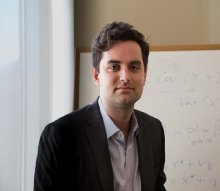“Time Zones, Tiredness, and Turnout: A Natural Experiment on the Effect of Sleep Deprivation on Voter Turnout and Election Results” with Jerome Schafer, Yale

AMERICAN POLITICS & PUBLIC POLICY WORKSHOP
Abstract: Why don’t more people vote? In this article, we show that many citizens fail to cast a ballot because they are too tired. To do so, we leverage a natural quasi-experiment that exploits discontinuous decreases in sleep times on the eastern side of U.S. time zone boundaries. Our preferred model specification indicates that this exogenous source of sleep deprivation depresses county-level turnout in general elections by about 2 percentage points, and pushes election results towards Republicans. This effect appears to exacerbate participatory inequality—depressing turnout in low propensity communities most—and is magnified in areas where obstacles to voting are greatest. Our findings have important theoretical implications for the study of political participation. They highlight that life constraints may stand in the way of civic engagement. This suggests that many citizens hold the precursors to participation but lack the general, rather than expressly political, motivation to follow-through and actually vote.
Jerome Schafer started his Ph.D. in Political Science at Yale in 2012. He is interested in political behavior, political economy, and quantitative methodology. His current research uses lab experiments to explore biases in economic voting. For example, voters tend to overweight recent events relative to cumulative performance. The lab setting precisely identifies what voters are capable of, and might suggest ways to assist them in taking decisions that serve their interests. A dual French and German citizen, Jerome holds a B.A. and an M.A. from Sciences Po Paris. His article “European Commission Officials’ Policy Attititudes” is forthcoming in JCMS: Journal of Common Market Studies.